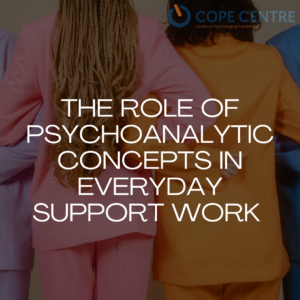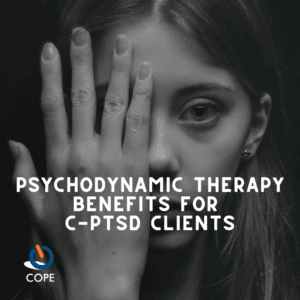The Impact of Domestic Abuse in Australia
Domestic Abuse remains a critical issue in today’s world, with a significant rise in incidents across Australia. It is more important than ever for healthcare professionals to be equipped with the knowledge and resources to support patients trapped in violent relationships—both physical and emotional.
The statistics of Domestic Abuse are alarming:
- On average, one woman a week is killed by a partner or former partner in Australia.
- One in six Australian women and one in sixteen men have experienced physical or sexual violence from a current or former partner.
- Over 2.2 million Australians have experienced emotional abuse by a partner.
(Source: Australian Bureau of Statistics)
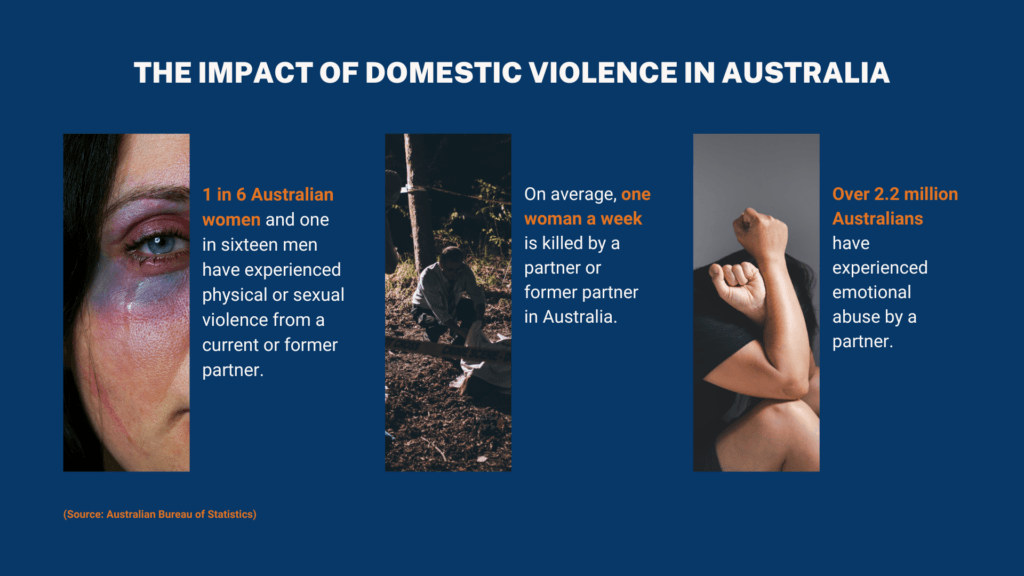
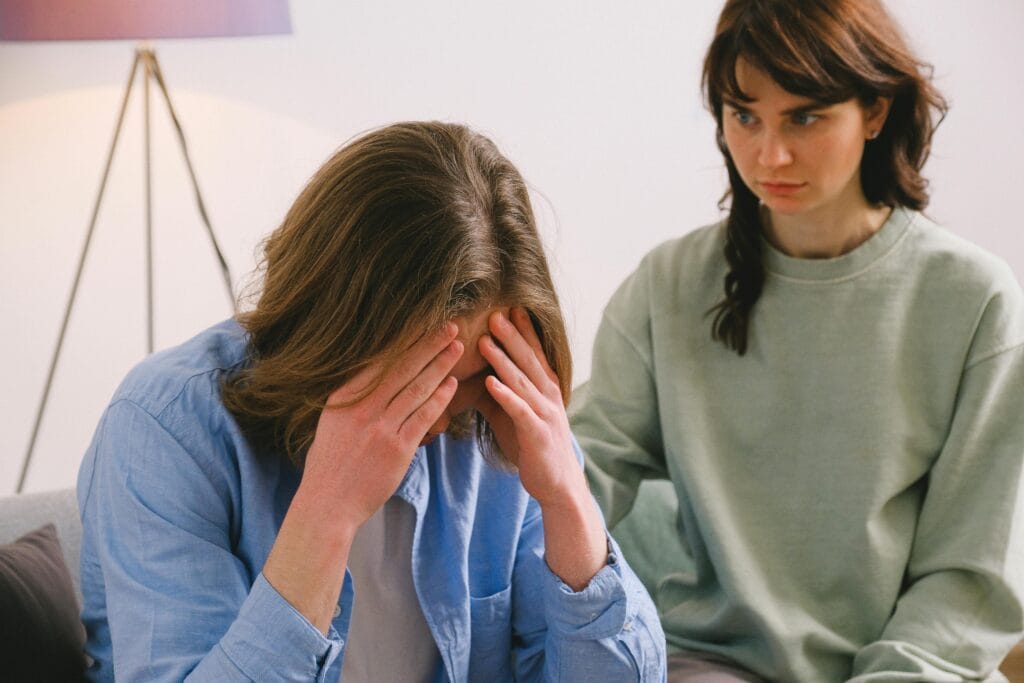
Understanding the Dynamics of Domestic Abuse
Domestic violence is not just physical. The dynamics of these relationships often involve control, manipulation, and emotional abuse. Common themes include:
- Power and control: Perpetrators often isolate victims, control their finances, limit their freedom, and manipulate their emotions.
- Cycle of abuse: These relationships frequently follow a pattern—tension builds, an abusive incident occurs, followed by reconciliation, and then the cycle begins again.
- Trauma bonding: Victims may develop an emotional attachment to the abuser, making it extremely difficult to leave, even in dangerous situations.
Approaching Domestic Abuse Through Psychodynamic Psychotherapy
Treating domestic violence is complex, and psychological interventions are challenging yet essential. Leaving an abusive relationship is identified as one of the most painful experiences as it evokes a significant trauma reenactment. At COPE, we take a psychodynamic approach, delving deeply into the unconscious processes that drive abusive relationships.
Through Object Relations Theory, we explore how past relationships shape current patterns of attachment and behavior, helping survivors of domestic violence better understand their relational dynamics. This approach helps individuals:
- Recognise harmful patterns in their relationships.
- Understand their internal world and how it may lead to remaining in harmful relationships.
- Empower them to break free from emotional and psychological ties to abusive partners.
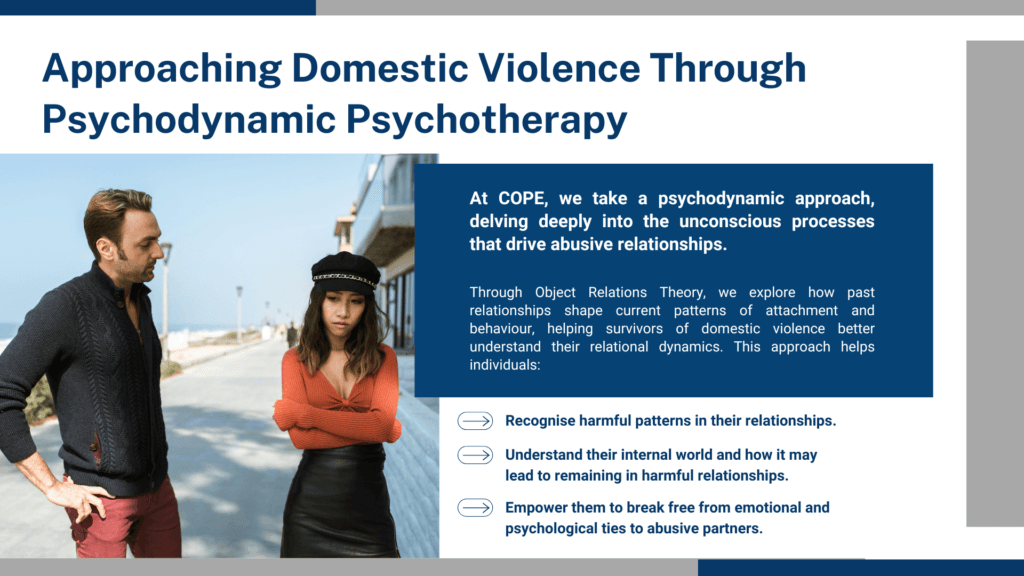
Domestic Violence: Signs Someone May Be in an Abusive Relationship
It’s crucial for GPs to be aware of the subtle signs that a patient may be experiencing abuse, which can include:
- Unexplained injuries or repeated accidents
- Excessive anxiety or fear when discussing their partner
- Withdrawal from social circles or support systems
- Low self-esteem or self-blame
- Deferring decision-making to their partner, even in minor matters
- Describing their partner as “jealous,” “possessive,” or “controlling”

It Doesn’t Need to Be Physical to Be Harmful
Emotional abuse can be just as harmful as physical violence. Verbal degradation, manipulation, gaslighting, and intimidation can leave deep, lasting scars. As GPs, your role in recognizing the less visible forms of abuse is crucial in helping patients begin their journey to safety and healing.
Resources for Your Patients
We understand the importance of providing your patients with access to local domestic violence services. Below are some trusted resources in our community:
- 1800RESPECT – National support service for anyone affected by domestic, family, or sexual violence. (1800 737 732)
- Women’s Council for Domestic and Family Violence Services WA – Local services for women in Western Australia.
- Men’s Domestic Violence Helpline – Provides counselling and support for men experiencing family violence. (1800 000 599)
COPE is Here to Help
At COPE, we have the capacity to accept referrals for individuals who are in emotionally abusive relationships. Our team is trained to help patients recognize the harm and abuse they are experiencing and support them in finding their path to recovery.
If you have patients who need psychological support in navigating the complexities of domestic violence, please consider referring them to us. We are committed to providing a safe and therapeutic space for their healing.
COPE Centre of Psychological Enrichment
📞 (08) 6556 6460
📧 [email protected]
